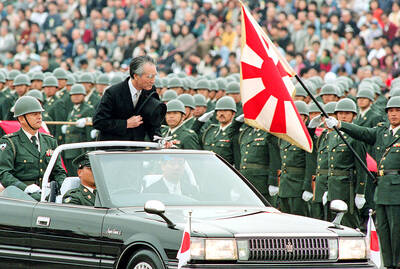Cuba’s second cholera outbreak in four months — after 130 years without the disease — has sickened more than 50 people and killed one in Havana, authorities and the family of the deceased said on Tuesday.
The latest outbreak was from the same cholera strain found to have been introduced in Haiti by Nepalese UN peacekeepers, unleashing an epidemic in 2010 that has killed about 7,900 people.
Miriam Rodrmguez, who lives in the Havana neighborhood most affected by the outbreak, said her son, Ubaldo Pino, a 46-year-old barber, succumbed to the disease on Jan. 6.
“He died of cholera and that is what is on his death certificate,” she said.
Authorities have not officially confirmed the cause of his death.
The Health Ministry said the outbreak was detected in Havana, a city of 2.2 million people, on Jan. 6 after a surge in cases of acute diarrhea. It said 51 cholera cases had been confirmed.
The Pedro Kouri Institute of Tropical Medicine traced the disease back to the same strain of cholera that caused last year’s outbreak in the city of Manzanillo, 800km east of Havana in Granma Province.
That outbreak, which hit in July and was declared eradicated on Aug. 28, claimed the lives of three people and infected 417.
It was the first time cholera had been reported on the Caribbean island since 1882.
The cholera was “generated by a food vendor, an asymptomatic carrier of the disease, contracted earlier in other regions of the country,” the Health Ministry said.
The latest outbreak first appeared in a working-class district called Cerro in the center of Havana, between the Plaza of the Revolution and the city’s main baseball stadium.
Rumors of a cholera outbreak spread in recent days after doctors and nurses began going door to door in certain neighborhoods to distribute medicine.
“They came to all the houses and said: ‘Are you allergic to penicillin?’ And they gave us three Doxycycline pills to take, but wouldn’t tell us anything,” a woman said. “I asked them if it was cholera, and they laughed, but didn’t tell us anything.”
The Health Ministry called on the public to pay increased attention to hygiene, urging frequent hand washing, the drinking of chlorinated water and careful cleaning and cooking of food.
The outbreak comes at the height of the tourist season in Cuba, which runs from December to April, when planeloads of travelers descend on the island from Canada, Europe and Latin America.
Cuban doctors have gained experience treating the disease in Haiti, which suffered a cholera epidemic that originated in the Artibonite River valley near a base for UN peacekeepers from Nepal.
The outbreak in Haiti, which had never had a recorded case of cholera, has since spread to Cuba, the Dominican Republic, Venezuela and the US.

The Venezuelan government on Monday said that it would close its embassies in Norway and Australia, and open new ones in Burkina Faso and Zimbabwe in a restructuring of its foreign service, after weeks of growing tensions with the US. The closures are part of the “strategic reassignation of resources,” Venezueland President Nicolas Maduro’s government said in a statement, adding that consular services to Venezuelans in Norway and Australia would be provided by diplomatic missions, with details to be shared in the coming days. The Norwegian Ministry of Foreign Affairs said that it had received notice of the embassy closure, but no

A missing fingertip offers a clue to Mako Nishimura’s criminal past as one of Japan’s few female yakuza, but after clawing her way out of the underworld, she now spends her days helping other retired gangsters reintegrate into society. The multibillion-dollar yakuza organized crime network has long ruled over Japan’s drug rings, illicit gambling dens and sex trade. In the past few years, the empire has started to crumble as members have dwindled and laws targeting mafia are tightened. An intensifying police crackdown has shrunk yakuza forces nationwide, with their numbers dipping below 20,000 last year for the first time since records

EXTRADITION FEARS: The legislative changes come five years after a treaty was suspended in response to the territory’s crackdown on democracy advocates Exiled Hong Kong dissidents said they fear UK government plans to restart some extraditions with the territory could put them in greater danger, adding that Hong Kong authorities would use any pretext to pursue them. An amendment to UK extradition laws was passed on Tuesday. It came more than five years after the UK and several other countries suspended extradition treaties with Hong Kong in response to a government crackdown on the democracy movement and its imposition of a National Security Law. The British Home Office said that the suspension of the treaty made all extraditions with Hong Kong impossible “even if

Former Japanese prime minister Tomiichi Murayama, best known for making a statement apologizing over World War II, died yesterday aged 101, officials said. Murayama in 1995 expressed “deep remorse” over the country’s atrocities in Asia. The statement became a benchmark for Tokyo’s subsequent apologies over World War II. “Tomiichi Murayama, the father of Japanese politics, passed away today at 11:28am at a hospital in Oita City at the age of 101,” Social Democratic Party Chairwoman Mizuho Fukushima said. Party Secretary-General Hiroyuki Takano said he had been informed that the former prime minister died of old age. In the landmark statement in August 1995, Murayama said